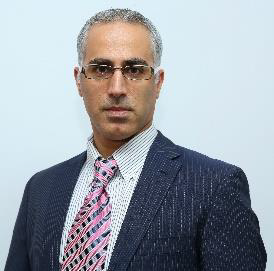
Erdinc Cosgun
PhD Student
School of Engineering & Physical Sciences, Institute of Mechanical, Process & Energy Engineering, Heriot-Watt University, Riccarton, UK
Biography
Erdinc completed his Bachelor of Mechanical Engineering (with First Class Honours) and Masters of Science in Oil and Gas Management at Heriot-Watt University. He is working in Schlumberger (Oil and Gas Service Company) since he is graduated in 2005.
He is highly motivated and result-oriented Program Manager and Engineer with sixteen years of industry experience. Erdinc is experienced in managing large scale industrial and commercial projects between $75M – $ 1.8B. He has proven ability to identify business opportunities communication skills to collaboratively ensure performance targets are consistently attained and provide the management and technical expertise to achieve revenue targets. He has solid knowledge of Intelligent Completions, Integrated oilfield services and R&D. He also attained Expertise on Risk Assessment, Project Management and Field Execution.
Erdinc will explore the techno-economic of slag heap weathering. The iron and steel industry is the largest industrial source of CO2 emissions due to the energy intensity of steel production, its reliance on carbon-based fuels and reductants, and the large volume of steel produced. World steel production has increased steadily over the last forty years and this growth is expected to continue, especially in the emerging economies which will indicate that more slugs will become available in the future. Slags generated during the iron and steel making processes have a high alkaline earth metal oxide content and could potentially be utilised to capture and permanently store CO2 via mineral carbonation. The objective of the research is to develop a useful tool to evaluate economics and environmental parameters in the field of carbon storage of slag weathering, to recommend viable pathways, from capture to disposal.
Roles & Responsibilities
Research interests
Erdinc’s main research interests are Carbon capture technology, Carbon Negative Energy, mineral carbonation Geochemistry, Steel Slag, CO2 Emissions.
